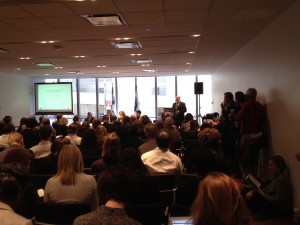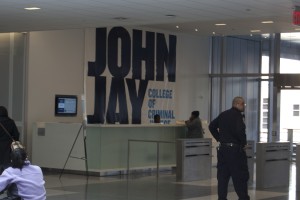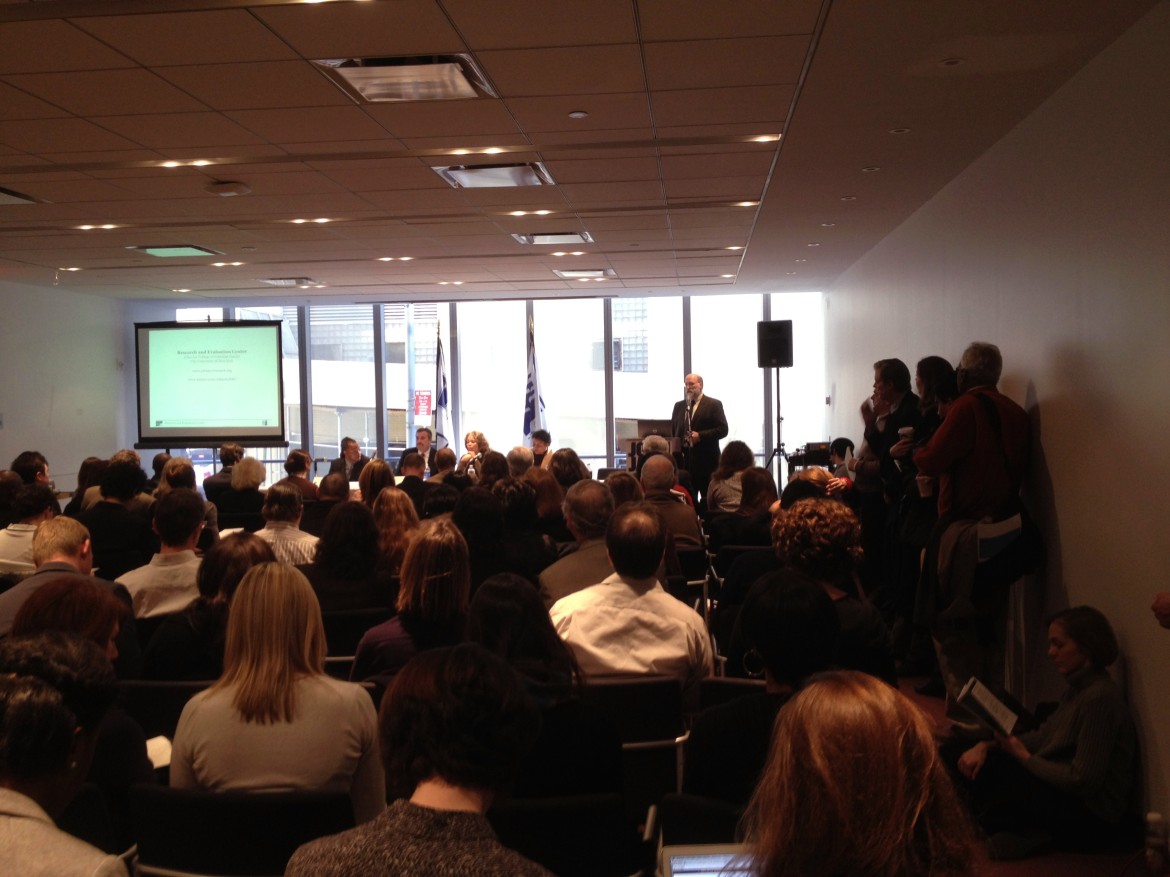 NEW YORK - On Monday, the first day of the Harry Frank Guggenheim Symposium on Crime in America, held at the John Jay College of Criminal Justice, a standing-room-only crowd of criminal justice experts, academics, advocates and journalists spilled out of the small conference room and into the large, modern glass and metal entry hall.
NEW YORK - On Monday, the first day of the Harry Frank Guggenheim Symposium on Crime in America, held at the John Jay College of Criminal Justice, a standing-room-only crowd of criminal justice experts, academics, advocates and journalists spilled out of the small conference room and into the large, modern glass and metal entry hall.
They were there to discuss how to fix the United States’ rapidly growing prison population, among other problems.
The conference, titled “The Problem That Won’t Go Away: How drugs, race and mass incarceration have distorted American justice (and what to do about it)," featured six panels over two days tackling areas of the criminal justice system that, the panelists say, are ripe for reform and critically important. But the two subjects discussed most were drugs and prisons.
Panels Monday included “America’s Addictions,” "Gangs, Drugs and Urban Violence” and “Crime and Criminal Justice Trends 2011-2012.”
Within the juvenile justice field, Dr. Jeffrey Butts, Director of the John Jay Center on Research and Evaluation said there was some good news.
“National trends in youth crime show that juvenile arrests are down since the 90s,” he said. “They are actually at a 30-year-low.”
 Sitting on the panels were experts on crime and drugs from across the United States such as Charlie Beck, chief of the Los Angeles Police Department, and Benjamin Tucker, deputy director of the White House Office on National Drug Policy. Other panelists included Phillip J. Cook, professor of economics at Duke University and Matt Cate, secretary of the California Department of Corrections and Community.
Sitting on the panels were experts on crime and drugs from across the United States such as Charlie Beck, chief of the Los Angeles Police Department, and Benjamin Tucker, deputy director of the White House Office on National Drug Policy. Other panelists included Phillip J. Cook, professor of economics at Duke University and Matt Cate, secretary of the California Department of Corrections and Community.
Gov. Dannel Malloy of Connecticut gave the keynote address.
At least one person at the symposium had direct experience with the gang violence and drugs the panels were discussing. Donyee Bradley grew up poor in Washington, D.C., the son of parents both addicted to crack cocaine. It wasn’t long before he joined a gang.
But, he says, “My violence was a symptom of the problem.”
He appeared to be heading down the same path his parents took until he was recruited into YouthBuild, a program that helps low-income youth earn their GED or high school diploma while employing them to build affordable housing in their community.
Today, Bradley is a Gang Outreach Worker, looking to help other kids the same way he was helped.
The seventh annual symposium was organized by John Jay College’s Center on Media, Crime and Justice. The Center brings together the criminal justice community and the media for information sharing and networking.
